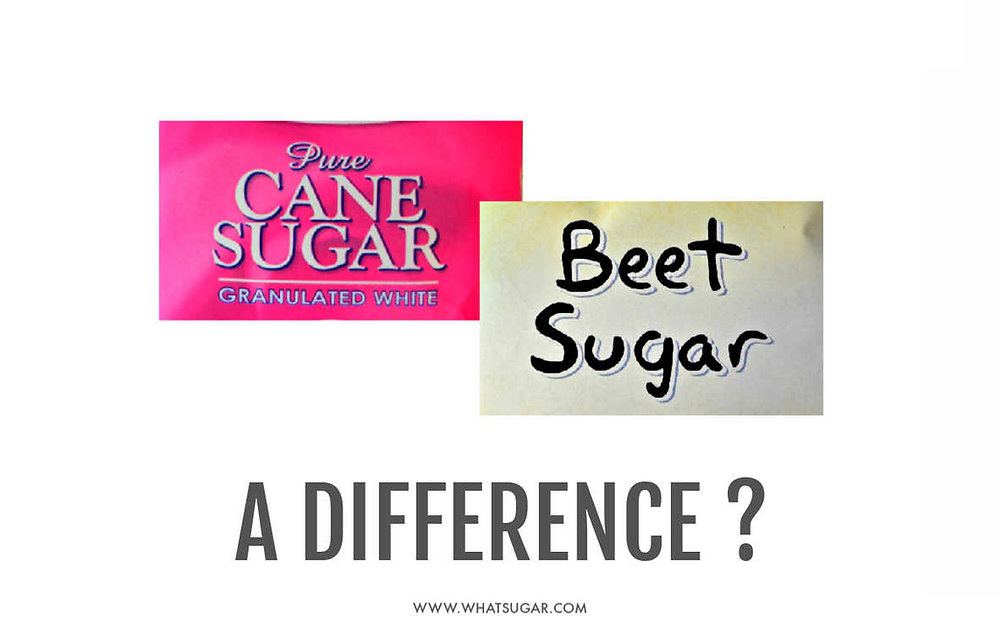Understanding Beet Sugar vs Cane: Which Is the More Sustainable Choice?
The Terrific Argument: Beetroot Sugar Vs Walking Cane and Their Influence On Wellness
The recurring discussion bordering beetroot sugar and walking cane sugar increases crucial questions regarding their particular wellness influences and broader ramifications for customer options. While both sweeteners share a comparable chemical make-up, their beginnings and handling techniques may influence not just nutrition however likewise environmental sustainability. As health-conscious individuals weigh the advantages of each option, the implications of chemical exposure and farming methods enter into focus. This discussion welcomes us to think about not simply the sweet taste we select, however the far-reaching impacts of those choices on our health and wellness and the world. What might this indicate for future intake patterns?
Summary of Sugar Resources
Sugar, a widely taken in sugar, largely stems from 2 major resources: sugar beets and sugar walking stick. These crops are cultivated in various regions worldwide, each adding to the international sugar supply in distinct means. Sugar cane grows in subtropical and tropical climates, with significant manufacturers including Brazil, India, and China. The plant is harvested for its stalks, which are after that processed to extract juice and crystallize sugar.
On the other hand, sugar beets are predominantly grown in temperate regions, with significant manufacturing in nations such as the USA, France, and Germany. The beets are gathered from the ground, cut, and subjected to a process that converts the extracted juice into granulated sugar. While both sugar resources ultimately generate sucrose, their agricultural techniques, refining approaches, and geographic distributions differ substantially.
These differences can influence not just the ecological effect of sugar production however additionally the financial facets of sugar rates and trade. Comprehending the beginnings of these sugar is crucial for consumers and policymakers alike, as it lays the foundation for educated discussions regarding their wellness implications and sustainability.
Nutritional Comparison
When checking out the nutritional accounts of beet sugar and walking cane sugar, both sources share a comparable composition as they mainly contain sucrose. Sucrose is a disaccharide, made up of glucose and fructose, and is accountable for the sweetness related to both sugars. The refining processes for both beet and walking cane sugar yield items that are mainly pure sucrose, with minimal traces of vitamins, minerals, or various other nutrients.
In regards to calorie content, both beetroot and cane sugars offer about 4 calories per gram. Neither kind of sugar offers considerable dietary benefits beyond energy arrangement, as they do not have necessary vitamins or minerals. The existence of trace components, such as potassium, calcium, and magnesium, can differ somewhat in between the two, primarily due to the farming techniques and dirt conditions in which they are grown.
Additionally, the glycemic index worths of beetroot sugar and walking cane sugar are equivalent, showing similar results on blood sugar degrees. Generally, from a nutritional point ofview, beetroot and walking cane sugars are functionally equal, contributing mainly to calorie intake without using considerable health and wellness benefits over one another.
Health Effects
The health ramifications of consuming beetroot sugar and walking stick sugar warrant mindful consideration, especially provided the increasing prevalence of sugar-related wellness issues. Both kinds of sugar add similar calorie worths and can result in increased threats of excessive weight, kind 2 diabetes, and cardio conditions when consumed in excess. The body sugars both metabolizes into sugar, which can trigger spikes in blood sugar degrees, resulting in insulin resistance gradually.
While there is continuous argument regarding the glycemic index of these sugars, research studies suggest that both can negatively impact metabolic wellness if consumed in large amounts. beet sugar vs cane. Furthermore, the possible existence of contaminants in beetroot sugar, such as pesticides from traditional farming techniques, elevates additional wellness worries. Conversely, walking stick sugar, particularly when minimally processed, might provide a slightly extra favorable profile as a result of its natural state
In addition, the usage of sugarcoated, regardless of the source, is connected to damaging health and wellness results, consisting of dental concerns and fatty liver disease. Moderation is essential, and people must be conscious of their overall sugar intake from all resources, ultimately prioritizing entire foods over included sugars for optimum health outcomes.
Environmental Influence
Understanding the health and wellness effects of beetroot and walking cane sugar additionally leads to an assessment of their environmental effect, which can considerably influence farming sustainability and eco-friendly equilibrium. Both sugar resources have distinct environmental footprints, original site shaped by their growing techniques and geographical demands.

On the other hand, beet sugar is commonly grown in temperate climates and commonly entails diverse crop rotations. This method can improve soil health and lower dependence on chemical inputs. Intensive beetroot farming can additionally lead to vitamins and mineral deficiency and pest stress if not taken care of sustainably.
Both sugar kinds existing difficulties and possibilities for ecological stewardship. Advertising sustainable farming practices and accountable sourcing can reduce their effects, making sure that sugar production lines up with ecological conservation and lasting food protection.
Customer Preferences
Amidst growing understanding of health and environmental issues, consumer choices for sugar kinds are progressively influenced by perceptions of health and wellness advantages, sustainability, and ethical sourcing. Beet sugar and walking cane sugar each existing distinct characteristics that interest different consumer demographics.
Health-conscious customers commonly inspect the nutritional accounts of these sugars, looking for alternatives regarded as much less processed or even more all-natural. Cane sugar, commonly considered as the conventional sugar, is often favored for its perceived purity and simpleness. In contrast, beetroot sugar, which is often originated from genetically modified crops, deals with uncertainty among those worried about GMOs.
Sustainability is an additional considerable aspect Find Out More affecting consumer selections. As understanding of agricultural practices grows, lots of consumers select items that line up with eco pleasant farming techniques. Cane sugar production, specifically when sourced from sustainable ranches, can attract eco-conscious purchasers.
Honest sourcing plays an essential role too, with customers progressively preferring products that support fair labor techniques. Certifications such as Fair Trade can boost the appearance of walking cane sugar in the marketplace. Ultimately, customer choices are formed by a complex interplay of health, environmental, and honest factors to consider, driving need for both beetroot and walking cane sugars in varied markets.
Final Thought
To conclude, the debate between beet sugar and walking stick sugar encompasses different variables, including nutritional profiles, health effects, and ecological repercussions. beet sugar vs cane. While both sugars mostly include sucrose and show comparable calorie web content, problems relating to chemical usage in beetroot sugar and the eco-friendly influence of walking cane sugar monoculture warrant careful factor to consider. As consumers significantly prioritize sustainability and health, informed selections relating to sugar intake become important learn the facts here now in advertising overall wellness and environmental stewardship
